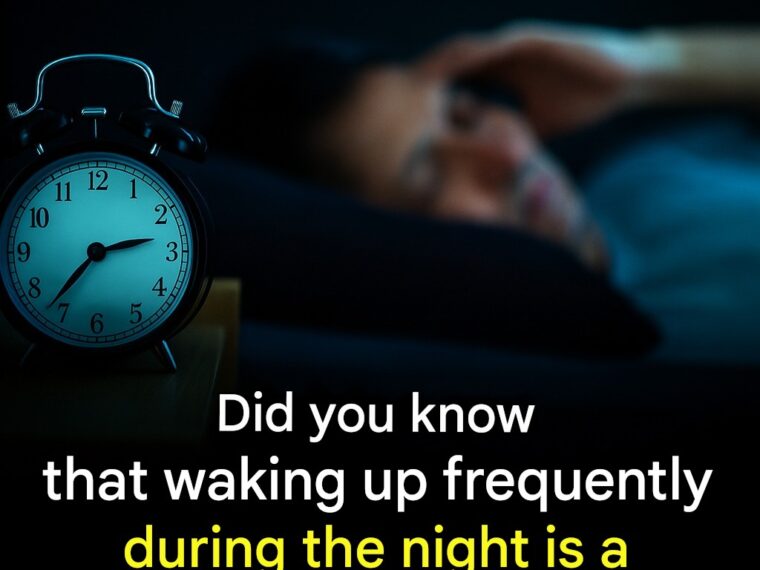Waking up several times during the night can be more than just a minor inconvenience—it can be a sign that your body or mind is struggling to maintain healthy sleep patterns. Frequent nighttime awakenings, also known as sleep fragmentation, can disrupt your body’s natural rhythm and affect everything from your mood and memory to your immune system. In this article, we’ll explore why it happens, what it means, and what science says about its effects on your health.
🌙 Understanding Normal Sleep vs. Disrupted Sleep
A normal sleep cycle consists of several stages: light sleep, deep sleep, and REM (rapid eye movement) sleep. Ideally, you should move smoothly through these cycles 4–6 times per night without waking up fully.
However, if you wake up frequently, your brain and body are interrupted mid-cycle. Even brief awakenings can prevent you from reaching the restorative stages of sleep your body needs to recover and recharge.
According to the National Sleep Foundation, adults typically need 7 to 9 hours of uninterrupted sleep per night for optimal health. Regularly waking up more than 2–3 times a night may indicate an underlying problem.
💤 Common Causes of Frequent Nighttime Awakenings
- Stress and Anxiety
Psychological stress is one of the most common culprits. When you’re anxious, your body produces more cortisol and adrenaline, hormones that increase alertness and make it harder to stay asleep.- A 2018 study in Sleep Medicine Reviews found that chronic stress and hyperarousal were key predictors of insomnia and sleep fragmentation.
- Sleep Apnea
This condition causes breathing to repeatedly stop and start during sleep, forcing brief awakenings to resume breathing.- Research from the American Academy of Sleep Medicine estimates that 1 in 5 adults experiences at least mild obstructive sleep apnea, which often goes undiagnosed.
- Nocturia (Frequent Nighttime Urination)
Getting up multiple times to urinate at night can interrupt your rest. Causes include drinking too much before bed, certain medications, or underlying conditions like diabetes or prostate enlargement. - Hormonal Changes
Hormone fluctuations—especially in women during menopause or pregnancy—can disrupt sleep. Drops in progesterone and estrogen are linked to night sweats and insomnia. - Poor Sleep Environment
Noise, light, uncomfortable bedding, or an unsuitable room temperature can trigger micro-awakenings throughout the night. - Caffeine, Alcohol, or Heavy Meals Before Bed
These substances interfere with the body’s ability to enter deep sleep. While alcohol might make you sleepy, studies show it fragments sleep later in the night. - Medical Conditions and Medications
Chronic pain, acid reflux, asthma, or depression can cause awakenings. Certain antidepressants and beta-blockers are also known to disrupt sleep cycles.
🧠 The Impact of Frequent Awakenings on Health
Even if you fall back asleep quickly, fragmented sleep has long-term effects on both physical and mental well-being.
- Cognitive Function: A 2015 study in Sleep journal found that interrupted sleep impairs memory consolidation and attention almost as much as total sleep deprivation.
- Mood Disorders: Poor sleep increases the risk of depression and anxiety. The Harvard Medical School Sleep Center notes that sleep problems can both cause and worsen mental health disorders.
- Immune System Weakness: A study by the University of California, San Francisco showed that people who slept less than 6 hours a night were 4 times more likely to catch a cold than those who slept 7+ hours.
- Metabolic Health: Disrupted sleep can alter insulin sensitivity and appetite hormones, increasing the risk of obesity and type 2 diabetes.
- Cardiovascular Stress: Fragmented sleep elevates blood pressure and inflammation, both risk factors for heart disease.
🕯️ When to Worry
TO CONTINUE READING THE ARTICLE PLEASE SEE PAGE 2




